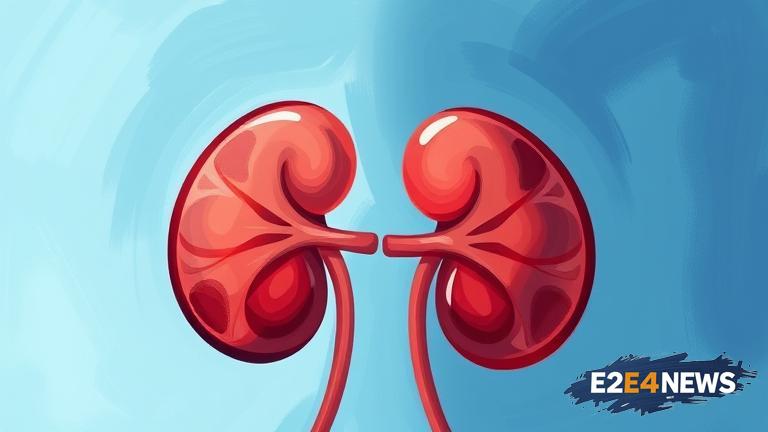Kidney disease is a growing concern in Nigeria, with thousands of people affected by the condition every year. The disease can be caused by a variety of factors, including diabetes, high blood pressure, and genetics. Symptoms can include fatigue, swelling, and pain, and if left untreated, kidney disease can lead to kidney failure, which can be life-threatening. However, there is now a lifeline for kidney patients in Nigeria, as new treatments and care options become available. One of the major breakthroughs in kidney disease treatment is the introduction of dialysis, a procedure that filters waste products from the blood when the kidneys are no longer able to perform this function. Dialysis can be done in a hospital or at home, and it has been shown to improve the quality of life for kidney patients. Another treatment option that is becoming increasingly popular is kidney transplantation, which involves replacing the diseased kidney with a healthy one from a donor. Kidney transplantation can be a life-saving procedure, and it has been shown to improve the survival rate of kidney patients. In addition to these treatments, there are also several lifestyle changes that kidney patients can make to manage their condition and improve their overall health. These include following a healthy diet, getting regular exercise, and managing stress. It is also important for kidney patients to stay hydrated by drinking plenty of water, and to avoid smoking and excessive alcohol consumption. Furthermore, kidney patients should work closely with their healthcare providers to monitor their condition and adjust their treatment plan as needed. Regular check-ups and screenings can help to identify any potential complications early on, and prevent them from becoming more serious. The Nigerian government has also been working to improve access to healthcare for kidney patients, including increasing funding for dialysis and transplantation programs. Additionally, several non-profit organizations are working to raise awareness about kidney disease and provide support to patients and their families. These organizations offer a range of services, including counseling, education, and financial assistance. They also work to promote organ donation and transplantation, and to advocate for policies that support kidney patients. Overall, while kidney disease is a serious condition, there is now a range of treatment options and support services available to patients in Nigeria. By working together, healthcare providers, patients, and families can help to improve the quality of life for kidney patients and increase their chances of survival. It is essential to continue to raise awareness about kidney disease and to promote education and research into the condition. With the right treatment and support, kidney patients can lead active and fulfilling lives, and there is hope for a future where kidney disease is no longer a life-threatening condition. The importance of early detection and treatment cannot be overstated, as it can significantly improve the outcomes for kidney patients. Moreover, the role of healthcare providers, including doctors, nurses, and other medical professionals, is crucial in providing high-quality care and support to kidney patients. The Nigerian healthcare system has made significant progress in recent years, and it is essential to continue to build on this progress to ensure that all kidney patients have access to the care and support they need. In conclusion, the future looks bright for kidney patients in Nigeria, and with continued advancements in treatment and care, it is likely that the quality of life for these patients will continue to improve.
